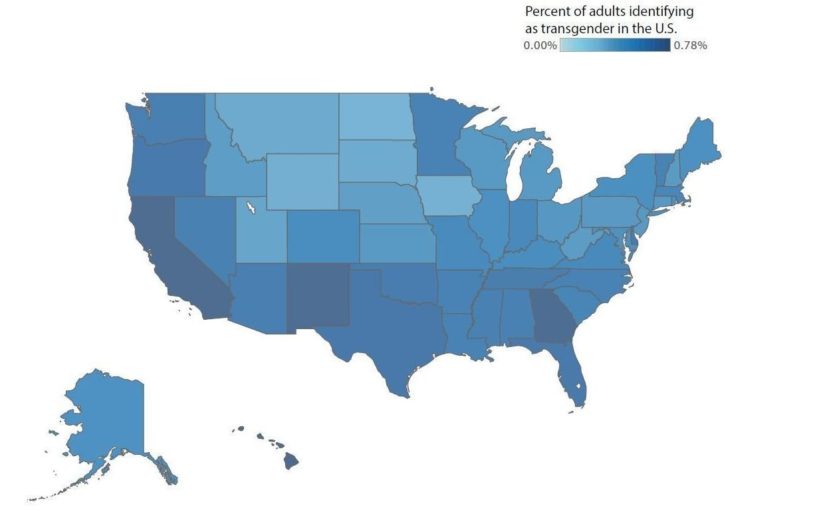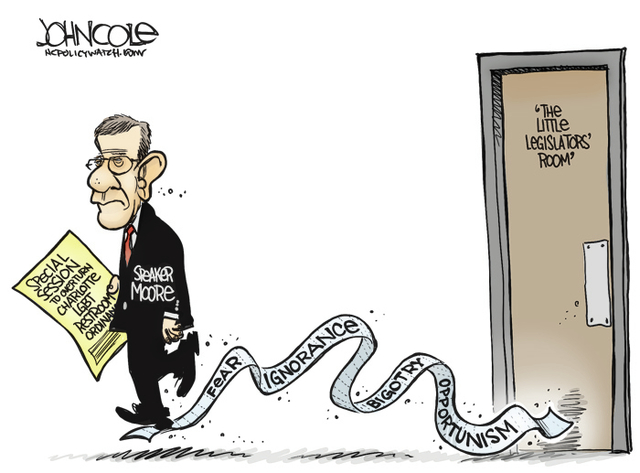(Image credit: Edvard Munch, Melancholy)
Seat belts on, good people. This is a long and admittedly contentious post. If you still wish to proceed but want to skip the History McNugget, feel free to jump down to here. I’ll also point out a nice spot lower down where you can bail out well before the bottom of this soon-to-be classic.
**inhale**
Pressed to recall the name of an ancient physician, most people will come up with Hippocrates or perhaps Asclepius. The former we remember for the oath bearing his name, wherein doctors promise to “first, do no harm”. The latter was a mythological figure, son of Apollo, taught the healing arts by centaurs and so skilled in his craft that he learned to bring people back from the dead. In terms of historical influence, however, none surpass Claudius Galenus or simply, Galen (b. CE 127; d.circa CE 200). A skilled anatomist, Galen moved medicine forward in a huge way, moving the seat of consciousness from the heart to the head, describing the double loop of the human circulatory system, demonstrating the bellows-like function of the ribcage and diaphragm, and pioneering several promising surgical techniques. So influential was he that medicines were referred to as “galenicals”, and his writings formed the basis for medical education for 1600 years.
In fact, such reverence turned out to be a major problem. The persistence of his teachings was not so much due not to their finality or accuracy, but rather to the intellectual paralysis of Christendom throughout medieval times, when veneration for tradition and dogma were seen to be the shortest road to knowledge. To question Galen’s authority–as he, an inquisitive scientist, would have done–was widely considered medical heresy until roughly 1800.
Relics of Galenism persist in our language to this day. As did Hippocrates before him, Galen believed that fluctuations of mood were caused by excesses of the “four humors”–blood, bile, phlegm and black bile. Healthy was the body in which these fluids balanced, but if they did not, one was said to be a person of ill humor. Each particular type of imbalance resulted in a certain temperament, sanguine (blood), choleric (bile), phlegmatic and, as represented by Munch’s painting, above, melancholic (black bile).
I propose that the moral of this story is that the tradition of misinterpretation and mischaracterization of mental health issues in Western medicine runs very long and deep indeed. “Humorism” is only one bizarre example, paling in my opinion to hysteria (from the Greek hyster; uterus) a condition believed to be caused by the abnormal movements of the unsatisfied (i.e. not enough sex and childbirth) uterus in the woman’s body. Next time someone tells you that you are being hysterical, feel free to answer either, “You must be mistaken…I don’t have a uterus,” or “Actually, I’m almost certain my uterus is in its proper anatomic position.”
**exhale**
Today I would like to delve into a more contemporary example of rampant pseudoscientific speculation–the phenomenon of transgender regret. The general idea is that a) transgender people frequently experience disappointment following medical/surgical transition; b) remorse drives transgender people to despair, leading to complicated medical detransition, depression and/or suicide; and that c) the media conspire to hide this fact from the public.
Let the good folks at Fox News be “Fair and Balanced”. I have no intention of cloaking my belief that transgender regret is at best a specious medical myth, and at worst a deliberately deceptive smokescreen propagated largely by transphobic zealots in order to shame or frighten transgender people from seeking medical attention. Nevertheless, I will charitably take upon myself if not the burden of proof, at least the full duty of persuasion. I intend to demonstrate that transgender regret as it is depicted is, to quote one of my favorite nurses, “not even a thing.”
As with many conspiracy theories, there is no shortage of proponents, in this case reverberating like internet lighthouses about the treacherous rocks of gender transition and the looming fog of fawning media and a profit-seeking medical establishment. Nevertheless, the movement has a patron saint, Walt Heyer, aka “the man who has had two sex changes”. Walt lived as male until age 42, then transitioned medically (hormones) and surgically (SRS), taking on the name Laura Jensen. Initially, all seemed to be well, but the further he got from the surgery, the more disillusioned he became. He eventually concluded that he had made a horrible mistake, and that his cross gender feelings were the result of childhood trauma, including sexual abuse. Eight years later, he renounced his transition and re-asserted himself as Walt. Since that time, he has become a tireless voice cautioning against gender transition. Now in his mid-seventies, he contributes to frequently to conservative media and blogs at http://www.sexchangeregret.com.
As too often happens in areas of controversy, transgender advocates and allies often see ad hominem attacks on Mr. Heyer as the most efficient way of destroying his arguments. I reject that route. I am fiercely protective of my own prerogative to tell my story, and no less so of Heyer’s to tell his. I take his word for it that his transgender feelings were no less genuine than mine, and certainly real enough to him at the time. Neither will I dispute his current conviction, that what he thought was gender dysphoria was actually fallout from childhood psychological trauma. If he says that he feels happier and whole having de-transitioned, I have no reason to doubt him. And finally, I assert that he has as good of a claim to the use of internet bandwidth as I do. Echoing Evelyn Beatrice Hall, I disapprove of what he says, but I will defend to the death his right to say it.
In short, I have no quibbles whatsoever with the biographical reflections of Walt Heyer, or even to his assertion that some transsexuals eventually de-transition or even commit suicide. Some clearly do. My beef is with a larger movement which overstates risks and trivializes benefit of generally effective therapies, piles shame and disinformation on already vulnerable people, and which, despite increasingly savvy packaging, can barely disguise its roots in religious fervor and/or transphobic bigotry.
Before going further, let me summarize what we know about the efficacy of medical transition a this point. First, somewhere northwards of 90% of patients who have had SRS report being happy that they did. Less well understood is whether they are are objectively better off post-transition. One study, for example, reported that 90% of patients were satisfied or very satisfied with SRS, but a less rosy 66% stated that they were “satisfied with life as it is now.” It would be interesting to know how non-transgender people with no experience of SRS would respond to that second question, which to my eye appears substantially more profound and complex. Another study places post-operative satisfaction at 95%, with dissatisfaction being related to quality of results rather than recantation of their new gender assignment, but only 62% of these patients were judged by clinicians to have have an overall favorable outcome.
Of more recent concern, a 2011 Swedish study appears to demonstrate with varying degrees of statistical support that post operative transsexuals experience more cardiovascular disease, cancer, suicide and all-cause mortality than the general population. Tipping my hand a little bit, transphobic activists love this study, whether or not they seem to have read it. Additionally, a British review of more than 100 international studies said that there is no conclusive evidence for the overall efficacy of SRS. Among the barriers to establishing clinical benefit are studies with poor rates of followup and an alarming number of really shitty papers lacking in scientific merit. Reviewers concede that in order to really understand the benefits, they would need a large group of control patients who were denied hormones and surgery for comparison, and that doing so would be cruel and unethical given that so far, these interventions are the only things that have been reported as beneficial by the patients themselves. Finally, just last month Swedish investigators reported that transwomen (MTF) who had hormones and surgery experienced less cardiovascular disease than patients who had hormones only. This is the most recent of a very small number of studies that recognize transition as a series of possible interventions rather than one process.
Clear as mud, right? Now that you have the lay of the land, we can move on to the transgender regret controversy, unless of course, you have already learned enough for one day and find you have no further fucks to give, in which case, I bid you a fond sayonara, wish you a Happy Festivus and encourage you to return in 2016 for what will almost certainly be a series of shorter, sweeter posts.
To you very clever souls remaining, I now pose the question: With so much uncertainty regarding how to optimally treat gender dysphoria, what is so wrong with those who are campaigning to discourage transition?
Heyer projects his personal experience on the rest of the transsexual population. Heyer spent the better part of a decade receiving treatments which left him feeling maimed, disfigured and deeply unhappy. I think we can all agree that this is a profoundly shitty treatment outcome. He came to the conclusion that it is impossible to change gender, and now labors fervently to see that no one else makes the same mistake.
Let’s concede that SRS really was a mistake for Heyer and recognize that he is not the only person to have come to such a conclusion, nor to have de-transitioned. Still, a bit of proportion is in order. There are somewhere between 15 and 20 thousand SRS procedures being performed annually in the US alone. How much prognostic significance can one rationally ascribe to one man’s regret?
For every Walt Heyer, there are one hundred others with no personal experience of gender dysphoria, who display little understanding of the science involved, but who nevertheless commit intense effort and bandwidth to giving others medical advice on the subject . Even though I disagree profoundly with Heyer, I have no difficulty whatsoever assuming that he has charitable motives. He suffered greatly, and wants no one else to have to repeat his story. What drives the rest of the fanatics? Read their pages if you want to make an educated guess. Some are peppered with links to ministry sites and others to comment streams seething with hatred for LGBT people, liberals, and “elites”. Often the two seem to go hand in hand. Genuine humanitarian concern? Not much that I can tell.
One of the hallmarks of conspiracy theorists is a reliance on “smoking guns”, i.e. pointing to an anecdote or single piece of data to invalidate a much larger body of evidence. A parallel example would be the man who witnesses an above average seasonal snowfall in his backyard and concludes that climate change is bunk. To transphobic activists, Walt Heyer is the smoking gun which confirms their bigotry. See? There’s no such thing as transgender. It’s just a bunch of crazies and queers.
The trans regret crowd tends to draw unsupportable conclusions from the available data, sometimes against the explicit advice of the scientists themselves. The 2011 Swedish study, for example, really did demonstrate increased mortality risk in post-operative transsexuals, particularly from suicide. However, as I have previously mentioned, people with untreated gender dysphoria are already at extremely high risk for suicide attempts. The anti-transition activists conclude that SRS shouldn’t be done because of the risks, but this would be like observing that more people died after heart bypass surgery than those who never had it, then concluding that heart surgery causes death. Perhaps, instead, having heart surgery is risky, but not having it is worse, and people who need the procedure are already more apt than others to die. In the authors’ words:
In other words, the results should not be interpreted such as sex reassignment per se increases morbidity and mortality. Things might have been even worse without sex reassignment.
Trans regret agitators imagine a world where sexual reassignment surgery is the common end point of all transgender therapy, and that patients are being corralled towards it. It isn’t, and they aren’t. Many trans people don’t seek SRS. Those who want to medically transition cannot simply choose to do so. Instead, they must navigate a long, expensive and often humiliating screening process. First, they must see a qualified mental health professional to be evaluated for the possibility of gender dysphoria. If verified, they may be referred to an endocrinologist, who may or may not choose to prescribe hormonal therapy. Prior to evaluation for SRS, the patient must take hormone therapy for at least a year with regular medical followups and engage in a Real Life Test (RLT), essentially living as the target gender 100% of the time. If they still express interest in surgery they must be seen by at least two physicians who assess for improved psychosocial functioning and fitness throughout the RLT. Wondering if Caitlyn Jenner has had bottom surgery? Don’t. At most she is in the latter months of her RLT. If they certify the candidate for surgery, the patient still must face multiyear waiting lists for procedures costing tens of thousands of dollars.
I have friends who are eager for surgery and others who are less so or not at all. Still others have been forced to give up for reasons, principally financial, beyond their control. The current screening process can be miserably cumbersome for those committed to that path. Further, they are generally at the mercy of mental health professionals (whether or not they experience concomitant mental illness) as the ultimate arbiters of their fate in a way that no other person seeking cosmetic or reproductive surgery would have to do.
For better or worse, this is how the system is set up. The treatment of gender dysphoria starts with slow, gradual and fully reversible steps which must incrementally be followed with frequent re-evaluation before more drastic and irreversible steps are considered. Trans regret sites often count those who tried and stopped an intervention, e.g. hormonal therapy, as cases of de-transition and regret instead of cases of careful and controlled trials of therapy. There is nothing speedy about the process. My personal experience is that my psychiatrist asked me what my current level of interest in SRS was at my first appointment and hasn’t mentioned it since. I certainly don’t feel like I am being railroaded by some nefarious Psychiatric Plastic Surgical Syndicate.
They massively overstate the frequency and intensity of post operative regret. Numerous studies have demonstrated patient satisfaction rates around 95%, and further state that dissatisfaction, when it occurs, often pertains to unfulfilled expectations or surgical complications more so than recanted decisions. Trans regret sites grab much higher numbers by mixing and matching from different studies, adding or multiplying non-equal factors, or sometimes simply pulling a number out of their ass.
Yes…the rate of post-operative dissatisfaction for transsexuals really is quite remarkable, but in precisely the opposite manner that Heyer and others suggest. Consider what the SRS patient can look forward to. First, they have to stop taking hormones pre-operatively to minimize clotting complications. This disrupts the sense of wellbeing that the hormones often provide for them, meaning that they show up for surgery a wreck. Then there is the surgery itself. MTFs can expect a minimum of several months of convalescence. Most procedures eventually result in a visually and functionally convincing vagina, but in those vulnerable hours when patients first awaken, they see a bruised, unrecognizable mess, quickly followed by severe pain, urinary retention, phantom itches that they can no longer scratch and a use-it-or-lose-it cavity which initially requires up to two hours per day of painful self-dilation for 6 months to a year. If they ever let up in this task, the vagina will close up like an unused piercing. Eventually becomes stable enough to be kept open by frequent penetrative intercourse, but life being what it is, the dilators will do most of the heavy lifting for the rest of their lives, or as long as they keep up the maintenance regimen, whichever comes first.
For FTMs, hormonal therapy works better, but the surgical prospects are worse. First, they must undergo the complex psychological screening above before getting “top surgery” (mastectomy) despite the fact that a woman may opt for a nearly identical process (generally for breast cancer risk reduction, although it is not yet medically clear that this intervention actually achieves that goal) simply by signing her consent. If they should opt for “bottom surgery” (SRS) the complexities ratchet up dramatically The adage states, “It is easier to dig a hole than build a pole.” Current technology cannot offer the prospect of a either a visually compelling or a fully functional penis. The FTM might achieve, depend on which procedure he selects, a cosmetically decent phallus which may or may not be able to pass urine, but cannot become erect. A different procedure offers a micropenis that can still orgasm, but cannot pee.
These are but tiny glimpses of the harrowing ordeal which transsexual patients endure and yet for the most part find to be worthwhile. Despite the known hazards and limitations of SRS, people line up for it and experience far more satisfaction after these surgeries than for almost any other for which we have such data. Better than gastric banding and other bariatric (weight loss) surgeries. Way better than for non-transgender related cosmetic surgeries. Hell…better than knee replacement.
They recommend repentance and prayer to transgender people as an alternative to medical care. If Jesus gets you through your cold, caffeine addiction or cancer, I say good for both of you. However, I am also in the business of mediating human suffering. I’ve seen plenty of people cured by God until they weren’t, at which point their further suffering was just confirmation that his ways are higher than ours. Walt Heyer can ascribe whatever spiritual meaning he wants to his struggle, as long as he follows it up with a hearty YMMV If he found clarity in religion, I am happy for him. My own experience was that religion so muddied my thinking with guilt and false narratives that I was unable to figure out that I was transgender until well into my 30’s and what to do about it until long after that. I just lacked faith, or hadn’t prayed enough, or was too busy rebelling against God. Again, YMMV.
Recommending prayer is probably fairly innocuous, in my opinion. Recommending repentance however is reprehensible, implying that being transgender is a moral failing, or represents a lack of faith. Take this burden upon yourself if you must, but doing so to a frightened child who can’t make sense of her identity is abuse. And the irony! God would never want you to mutilate your body by “cutting off your penis.” He would, however, like us all to hold down screaming infants who could not possibly understand or offer consent and cut off the last little bit on the end. He put it there to give us an opportunity to show faith. Besides, it doesn’t really hurt them at that age, right?
This all sounds vaguely familiar. The sort of fear-mongering we encounter regarding SRS is not without precedent. Remember Post Abortion Stress Syndrome (PASS)? Medical experts disagree on whether it exists in its own right or as a special case of PTSD. My reading suggests that most lean toward the latter, and that if it does occur, it can be difficult to tease out whether the woman suffers stress due to the abortion itself, or from pre-existing factors which may well have entered into her decision to have the procedure in the first place. However, several things strike me as obvious. First, there an awful lot of medically and/or scientifically unqualified people–in some cases the very same people–offering expert opinion to complete strangers on this matter. Second, the critiques I offered above can all be applied to with very little modification to PASS. Third, opponents invoke a largely hypothetical syndrome in hopes of discouraging, restricting or outright banning others from having this procedure. And finally, most women, coincidentally enough 95% again, never experience it.
It is no accident that I started to understand what it meant to be transgender shortly after the internet became an efficient vehicle for the dissemination of information. What was previously embarrassing or even impossible to find out in the public library was now available with a click of a mouse (after that really obnoxious telephone modem sound). My private hell was suddenly something that also happened to other people, some of whom had stories to which I could relate. This not to say that I didn’t encounter a lot of junk on the internet too. You can easily imagine what comes up with the pertinent search terms.
For my part, I am glad that Walt Heyer’s site was not the first that I encountered back then. In my confused state I might have accepted his disinformation and personal opinions as fact. The best antidotes for propaganda are calling it out for what it is and seeking a greater understanding of what it means to be transgender. On the medical side, this means more and better scientific study, looking critically at what helps and what does not. Thanks to research done so far, we are beginning to understand the importance of mental health support for transgender people whether or not they surgically transition, and that surgery itself, while helpful, probably does not completely cure depression or mitigate suicide risk. This is vital information, but not yet presenting sufficient reason to suggest that the safest course is abandonment of medical and surgical therapies that transgender patients themselves consistently report as helpful and positive. For your part, it means trudging through what recently seems like a endless barrage of information on transgender issues so that the next kid who looks to you for help might find compassion, acceptance and referral to effective care.
In that light, I genuinely thank you for reading this far.










